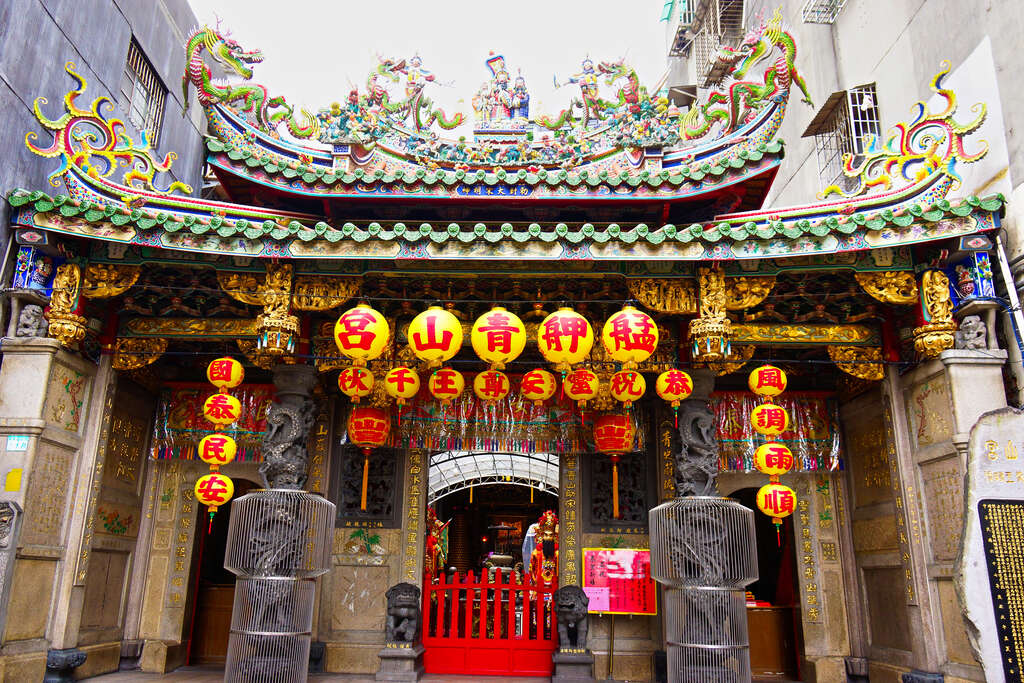Bangka Chingshan Temple Introduction
Zhang Gun, a general under Sun Quan in the Three Kingdoms period, was known for his successful governance of Quanzhou's Hui'an. After his death, the local community established Qingshan Temple to honor him, where he is revered as Qingshan Wang or Ling'an Zunwang. Qingshan Wang has traditionally been believed to possess the power to eliminate epidemics and oversee justice, rewarding the good and punishing the evil, alongside deities such as the Eight Officials, General Jia, and General Suo. Mengjia Qingshan Temple, with a history of over a hundred years, is a beautifully constructed temple combining wood and stone, featuring multiple courtyards and having undergone several renovations. Notable architectural details include the octagonal coffered ceiling and the use of historically significant materials, such as the stone pillars and stone stacks sourced from the remains of the Yuanshan Shrine. Additionally, the statue of Qingshan Wang has piercing eyes that provide a different experience from every angle, allowing visitors to personally appreciate its presence. Every year on the 23rd day of the 10th month of the lunar calendar, Qingshan Wang's birthday is celebrated. According to legend, he inspects the streets of the Mengjia area with his officers two days prior to his birthday to bless the local residents. The night on the 22nd features lively activities for the deity's palanquin procession, including various performances such as Ba Jia Jiang, drumming troupes, and bands. Households set up incense altars and offerings along the streets, marking the celebration known as the "Mengjia Great Worship," which is one of Taipei's three major temple fairs, alongside the festivals at Dadaocheng Xiahai City God Temple and Baosheng Dadi.













